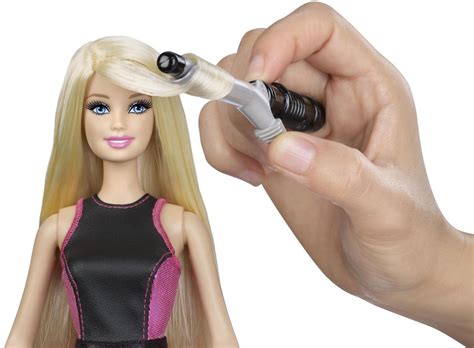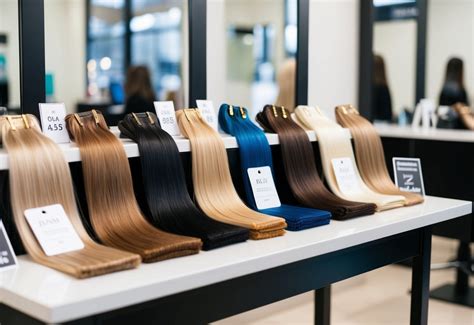Long, luscious locks have always been a symbol of beauty and glamour. In today’s world, hair extensions offer a convenient and versatile solution to enhance your natural hair, adding volume, length, or color. However, navigating the world of hair extensions can be overwhelming, especially when it comes to understanding the cost.

Factors Influencing Hair Extensions Cost
Several factors influence the price of hair extensions, including:
- Type of Hair: Human hair extensions are more expensive than synthetic extensions due to their natural appearance and durability. Remy hair, the highest-quality human hair, is collected from a single donor, ensuring all cuticles are aligned and reducing tangling.
- Length: Longer extensions typically cost more than shorter ones because they require more hair to create.
- Method: The method used to apply extensions also impact the price. Clip-ins and tape-ins are less expensive than fusion or sew-in methods, which require professional installation.
- Quantity: The number of extensions required depends on the desired fullness and length. More extensions generally mean a higher cost.
- Salon or Stylist: The reputation, experience, and location of the salon or stylist can influence the price.
Estimated Hair Extensions Cost
The cost of hair extensions varies widely depending on the above factors. Here is an approximate breakdown to help you budget:
| Type of Hair | Length | Method | Estimated Cost |
|---|---|---|---|
| Synthetic | Up to 18 inches | Clip-in | $50-$200 |
| Synthetic | Up to 18 inches | Tape-in | $200-$400 |
| Human | Up to 18 inches | Clip-in | $200-$500 |
| Human | Up to 18 inches | Tape-in | $400-$800 |
| Human | Up to 18 inches | Fusion | $1,000-$2,000 |
| Human | Up to 18 inches | Sew-in | $800-$1,500 |
DIY vs. Professional Installation
While clip-in and tape-in extensions can be installed at home, it is highly recommended to seek professional help for fusion and sew-in methods. Improper installation can damage your natural hair and lead to costly repairs.
DIY Installation:
- Clip-in: Free
- Tape-in: $50-$100 (for application kit)
Professional Installation:
- Fusion: $300-$600
- Sew-in: $200-$400
Maintenance and Aftercare
Hair extensions require proper maintenance to maintain their appearance and longevity. This includes regular washing, conditioning, and brushing. Additional costs for maintenance can include:
- Salon visits for adjustments or re-installation: $50-$150 per visit
- Special haircare products: $20-$50 per month
- Conditioning treatments: $50-$100 per treatment
Innovative Applications of Hair Extensions
Beyond traditional hair enhancements, hair extensions are being used for innovative applications, such as:
- Hair toppers: Thinning or balding areas can be concealed with hair toppers, which are small, non-permanent pieces that add volume at the crown.
- Eyelash extensions: Synthetic or natural hair extensions can be applied to the eyelashes to lengthen and enhance their appearance.
- Volume enhancements: Clip-in or tape-in extensions can add instant volume to flat or fine hair.
Financial Assistance for Hair Extensions
For those facing financial constraints, there are options for financial assistance to cover the cost of hair extensions.
- Medical insurance: Some insurance policies may cover the cost of hair extensions for medical conditions such as alopecia.
- Non-profit organizations: Organizations like the American Cancer Society offer wigs and hair extensions to cancer patients.
- Salon payment plans: Some salons offer payment plans that allow clients to spread the cost of extensions over several months.
Frequently Asked Questions
Q: How long do hair extensions last?
A: The lifespan of hair extensions varies depending on the type, maintenance, and frequency of use. Human hair extensions typically last 3-6 months, while synthetic extensions last 1-3 months.
Q: Can I reuse hair extensions?
A: Fusion and sew-in extensions can be reused after removal and re-installation. Clip-in and tape-in extensions may not be reusable.
Q: Do hair extensions damage my hair?
A: Improper installation or excessive weight can damage natural hair. It is essential to consult a professional and follow proper maintenance guidelines.
Q: Are there any alternatives to hair extensions?
A: Alternatives to extensions include hair volumizers, hair toppers, and wigs.
Q: Can hair extensions be colored or styled?
A: Human hair extensions can be colored and styled similarly to natural hair. Synthetic extensions have limited styling options.
Q: Do hair extensions require special care?
A: Yes, extensions require regular washing, conditioning, and brushing. Avoid over-styling or using harsh products.
Conclusion
Navigating the cost of hair extensions can be challenging, but understanding the factors involved can help you make informed decisions. By carefully considering your needs and weighing the options available, you can achieve the desired hair transformations without breaking the bank. Remember, the most important factor is to prioritize healthy hair practices and consult a reputable professional for guidance.
